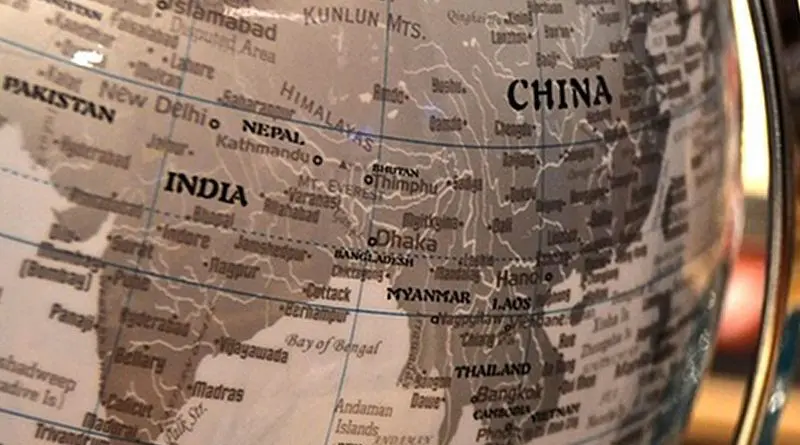
From 19 to 21 May 2025, Pakistan’s Deputy Prime Minister Ishaq Dar undertook a three-day official visit to China at the invitation of Chinese Foreign Minister Wang Yi. The visit took place amid rising regional tensions between the two South Asian nuclear-armed neighbours, India and Pakistan. Following Operation Sindoor, the situation between the two countries has escalated, prompting increased diplomatic and strategic support for Pakistan from Beijing. China continues to emphasize the importance of fostering regional stability through diplomatic engagement.
Pakistan’s recent diplomatic efforts have received a significant boost through strong support from China, signaling Islamabad’s growing role in regional affairs. The visit has further solidified the Pakistan-China strategic axis, reinforcing their shared vision for a peaceful and prosperous South Asian region. China has recognized Pakistan as a key regional partner in its efforts to promote security and cooperation across the neighborhood. With proactive diplomatic outreach, Islamabad is steadily positioning itself as a central player in regional peace initiatives, supported by Beijing’s growing confidence. Moreover, China’s call for balanced engagement with both India and Pakistan reflects its trust in Pakistan’s peaceful intentions and its significance in shaping regional stability.
Furthermore, Pakistan’s concerns on critical issues such as the Indus Water Treaty have gained added weight through direct diplomatic engagement with its closest strategic ally, China. The recent high-level meetings have provided Islamabad with a vital platform to highlight its regional priorities, particularly regarding water security and strategic stability. China’s reaffirmation of its “All-Weather Strategic Cooperative Partnership” with Pakistan not only reflects enduring mutual trust but also reinforces Pakistan’s growing diplomatic stature. As tensions continue to rise in South Asia, Beijing’s support signals a broader commitment to regional peace and balance. This partnership amplifies Pakistan’s voice in critical regional forums and strengthens its position in dialogue with India. China’s backing also lends credibility to Pakistan’s stance on long-standing disputes. The alignment of both countries on key strategic and development issues demonstrates a shared vision for regional cooperation. Pakistan’s proactive diplomacy is complemented by China’s consistent engagement and support. Together, they aim to counter destabilizing influences in the region. This evolving dynamic positions Pakistan as a pivotal player in shaping South Asia’s security architecture.
Foreign Minister Mohammad Ishaq Dar also met with Afghanistan’s Acting Foreign Minister Amir Khan Muttaqi in Beijing, reaffirming the growing positive momentum in Pakistan-Afghanistan relations. The two leaders reflected on the DPM/FM’s recent visit to Kabul and welcomed the strengthening of diplomatic engagement, trade, and transit cooperation between the two countries. They expressed a shared commitment to advancing mutual interests, particularly in the areas of trade, connectivity, and regional security. A key highlight of their discussion was Afghanistan’s inclusion in the China-Pakistan Economic Corridor (CPEC), marking a significant step toward deeper regional integration. This development connects Kabul to the strategic port of Gwadar, opening up new avenues for commerce and development across South and Central Asia. Both sides agreed that enhanced connectivity and cooperative frameworks under CPEC can contribute to economic stability and long-term peace in the region.
Despite the efforts of a few hostile states to sabotage and divide, their agenda stands defeated as Pakistan and Afghanistan move forward with constructive diplomacy, supported by China’s vision for a peaceful and economically integrated region. The growing trilateral consensus on trade, transit, and security sends a clear message that regional cooperation holds greater promise than divisive narratives pushed by adversaries. At a time when certain elements seek to destabilize the region through espionage and misinformation, Pakistan and Afghanistan, with China as a trusted development partner, are focused on building lasting peace and economic progress. The westward expansion of the China-Pakistan Economic Corridor (CPEC) marks a turning point, creating new opportunities for regional interdependence and sustainable development across South and Central Asia.
To further strengthen the trilateral partnership, Pakistan, Afghanistan, and China must focus on institutionalizing their cooperation through regular high-level dialogues, joint economic forums, and security coordination mechanisms. Establishing a trilateral economic commission could help streamline infrastructure projects, trade facilitation, and investment opportunities under the broader framework of CPEC. Enhanced people-to-people exchanges, educational collaboration, and cultural linkages can also contribute to building trust and mutual understanding. For long-term success, all three countries must ensure that their shared initiatives are inclusive, transparent, and responsive to regional needs. By deepening coordination and aligning national priorities with regional goals, the Pakistan-Afghanistan-China partnership has the potential to become a cornerstone for lasting peace, connectivity, and prosperity in South and Central Asia.
